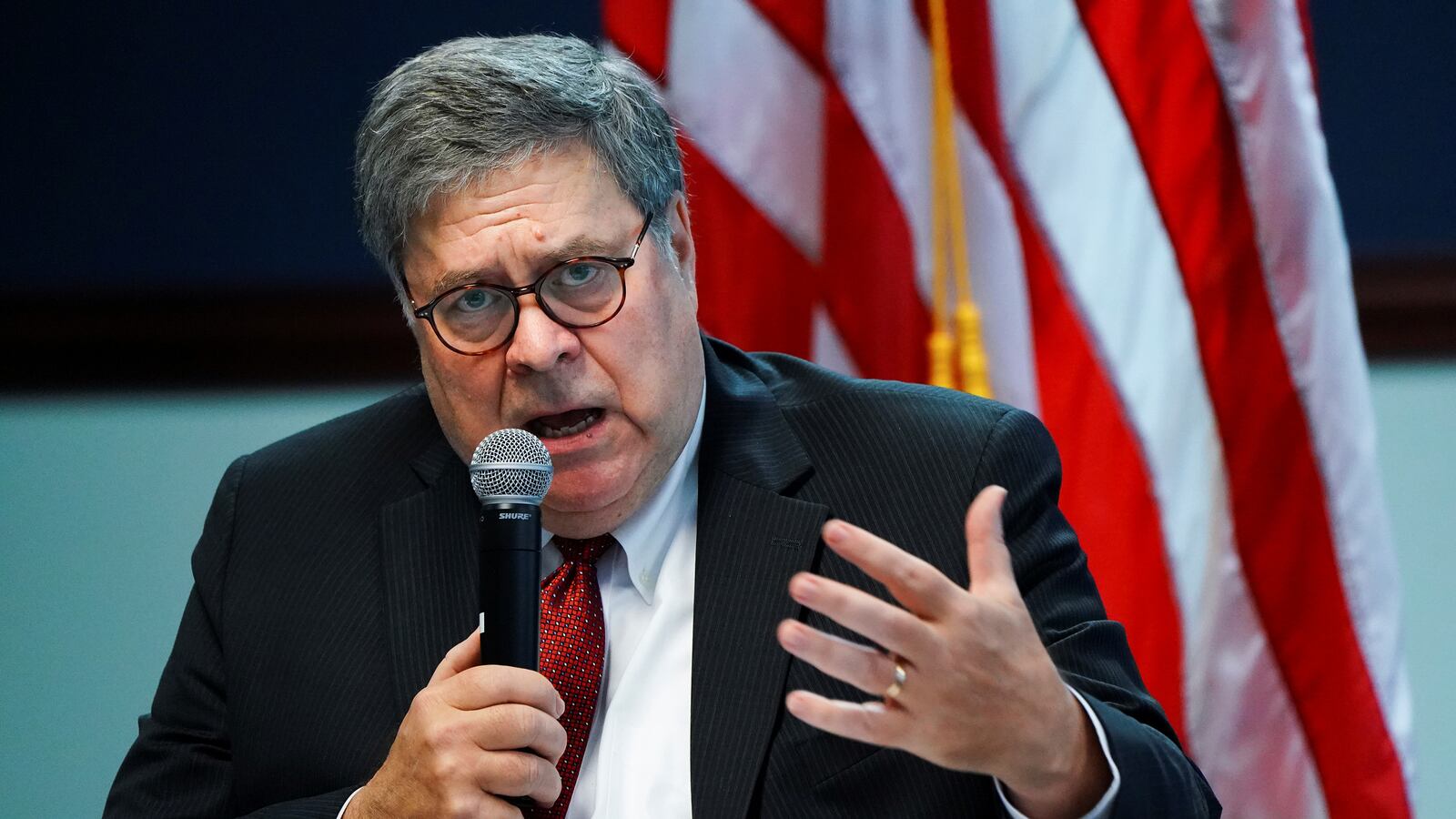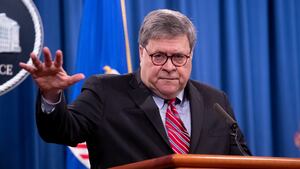As has nearly every former Donald Trump official before him, former Attorney General William Barr launched a nationwide media tour to promote his new Trump-era memoir, One Damn Thing After Another: Memoirs of an Attorney General.
He’s given two NBC interviews (and was promptly bashed by the former president for one of them), sat down for an extended—and photographed—chat with NPR, and appeared on Fox News’ straight-laced Special Report with Bret Baier. It is a standard rite of passage for former White House officials, and almost especially so for those who survived the Trump White House.
But it is an odd choice for a man who explicitly outlines his contempt for the news media throughout the 595-page book.
As Barr outlines each period of his life, he manages to throw in jabs at the media wherever he deems fit. In a passage discussing former Vice President Dan Quayle, Barr pokes dismissively at media coverage of Democratic candidates. “I have to laugh at the same media’s adulatory treatment of Barack Obama, John Edwards, and Kamala Harris when they first ran for high office,” he writes. “Their lack of relevant experience made them outsiders, unsullied by Washington, above politics.”
That animosity grew throughout his career. Barr chastises the media over the Iran-Contra affair in a four-page diatribe, defending his former boss George H.W. Bush and blasting journalists’ “claims” in certain stories. Barr’s characterizations include phrases like “the media’s false idea”; “gross distortion”; “dead wrong, again”; and specific lashings at The Washington Post, The Los Angeles Times, and Mike Wallace at CBS News. He supported those attacks with writings by conservative personalities such Kenneth Juster and Stuart Taylor, “a journalist who still cares about the truth.”
“The truth never made a difference to the partisan media. Their bogus narrative was an unmitigated success,” Barr wrote, later citing Taylor’s belief that the media was solely invested in “old-fashioned sensationalism.”
“Things have only gotten worse,” Barr added.
The Trump years did nothing to quell his frustration. In his passages about Special Counsel Robert Mueller’s report examining the 2016 election, Barr takes repeated potshots at the media. In one, he claimed news organizations “wanted the immediate gratification of seeing the whole report right away” after its release, something the Department of Justice—he points out in the holier–than-thou tone so characteristic throughout the book—”could not lawfully release” until redactions were made. Elsewhere he recalls how Trump would often call after Barr was “beaten up by the press—which was most of the time.”
Barr wasn’t afraid to make use of the media, however. He discussed his eagerness to promote his anti-crime initiative “Operation Legend” nationally, despite what he called efforts by “much of the national media” to “idiotically” mischaracterize it as federal occupation of cities with protests.
He even raised the issue to Trump in the Oval Office, claiming it was getting good coverage at the local level and would have liked to see the White House more forcefully promote it—if it wasn’t facing “something provocative… that drove everything else out of the news.”
Trump eventually shot down Barr’s hopes.
Barr’s request mirrors the approach he has taken on his book tour. Despite his previous media criticisms, Barr has made himself available to multiple national media outlets and has seized on the narrative of his break-up with the former president.
He criticized the president’s lies about the 2020 election to NBC’s Lester Holt—”It was wrong to be shoveling it out the way his team was”—and said Trump never understood “the role of the Department of Justice.” Even Trump’s bizarre response letter to Holt attacking Barr hasn’t stopped the former attorney general for wheeling his book out to the press.
He has not taken the position of a resistance leader as have former Trump acolytes like Michael Cohen and Stephanie Winston Wolkoff, but Barr—unwaveringly stoic and phlegmatic—knew what would gain him national prominence at major news outlets: criticizing his former boss while also claiming he’d vote for him in 2024.
By doing so, Barr made use of one of his top political enemies: the media. It just took him hundreds of pages of attacking it to get there.







